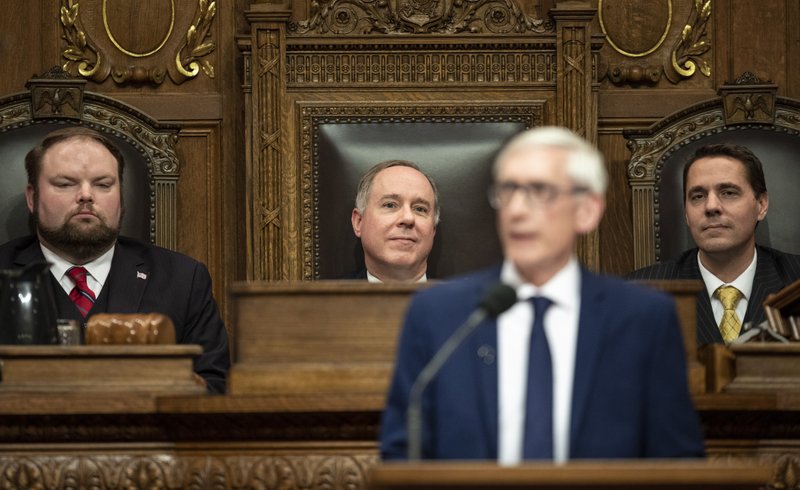Coronavirus
GOP calls Evers’ mass ballot mailing idea ‘complete fantasy’

MADISON, Wis. (AP) — Wisconsin Republicans signaled Friday that they have no interest in postponing or adjusting the state’s April 7 presidential primary despite the coronavirus threat, branding Democratic Gov. Tony Evers’ call for the Legislature to send absentee ballots to every registered voter a “complete fantasy.”
Evers called on Republican legislative leaders to convene quickly and change the state’s election statutes to allow for the mass-mailing and to give local clerks more time to count ballots. But Evers and Republicans have been at odds since he took office in January 2019, and Senate Majority Leader Scott Fitzgerald’s response to his request was all but expected.
“Governor Evers just proposed procuring, printing, verifying and mandating the mailing of millions of ballots within 10 days,” Fitzgerald said in a statement. “Even he knows that’s not logistically feasible. The clerks of this state should know this is a complete fantasy. The Legislature on both sides of the aisle has to know this is ridiculous.”
Evers’ spokeswoman, Melissa Baldauff, had no immediate comment on Fitzgerald’s statement. Earlier Friday, she said Evers was prepared to call the Legislature into special session to authorize the mailing but that he first wanted to try to reach consensus with Fitzgerald and Assembly Speaker Robin Vos. Both have said they want the election to take place as scheduled.
Even if Evers were to call a special session, it likely wouldn’t accomplish anything. Fitzgerald and Vos could simply gavel in and gavel out without taking any action — assuming they could even figure out a way for the Legislature to meet safely.
“We are in the middle of an unprecedented public health and economic emergency,” Baldauff said. “If they can’t put politics aside now for the good of all Wisconsinites, that’s a serious problem.”
In addition to Wisconsin’s presidential primary, the election features a state Supreme Court race and hundreds of local races.
Several states have postponed their primaries and Evers has been facing mounting pressure from liberal-leaning groups to postpone or adjust Wisconsin’s to protect voters and poll workers from the virus.
But the Legislature’s attorneys believe he lacks the authority to unilaterally make changes to any state statutes, including election laws, even during states of emergency. He has been urging people to vote absentee, but that’s all he can do without risking a lawsuit, his attorney told reporters during a conference call Friday.
A judge could still order changes to the election. Voting rights groups and labor unions have filed a series of federal lawsuits over the last week demanding everything from stopping in-person voting to lifting photo ID requirements to obtain absentee ballots. A coalition of voting rights groups and labor unions filed the latest suit late Thursday.
Meanwhile, the state elections commission planned to meet Friday night to discuss new guidelines for in-person voting, including recommendations that poll workers keep their doors open, minimize things voters need to touch, keep voters six feet apart and complete a survey asking if they’re healthy.
The commission planned to vote on whether to take the position that voters who request absentee ballots online but can’t upload a photo ID can declare themselves indefinitely confined if they feel they are. Such voters would be exempt from photo ID requirements.
Democratic clerks in Madison and Milwaukee have been advising absentee ballot applicants who can’t upload an ID to simply declare themselves indefinitely declined to get around the requirement. They argue that Evers’ stay-at-home order this week means everyone in the state is technically indefinitely confined.
Fitzgerald and Vos contend that the order contains enough exemptions that it doesn’t mean everyone is indefinitely confined and clerks can’t tell people to use the classification to dodge the photo ID requirement.
Follow Todd Richmond on Twitter: https:twitter.com/trichmond1







